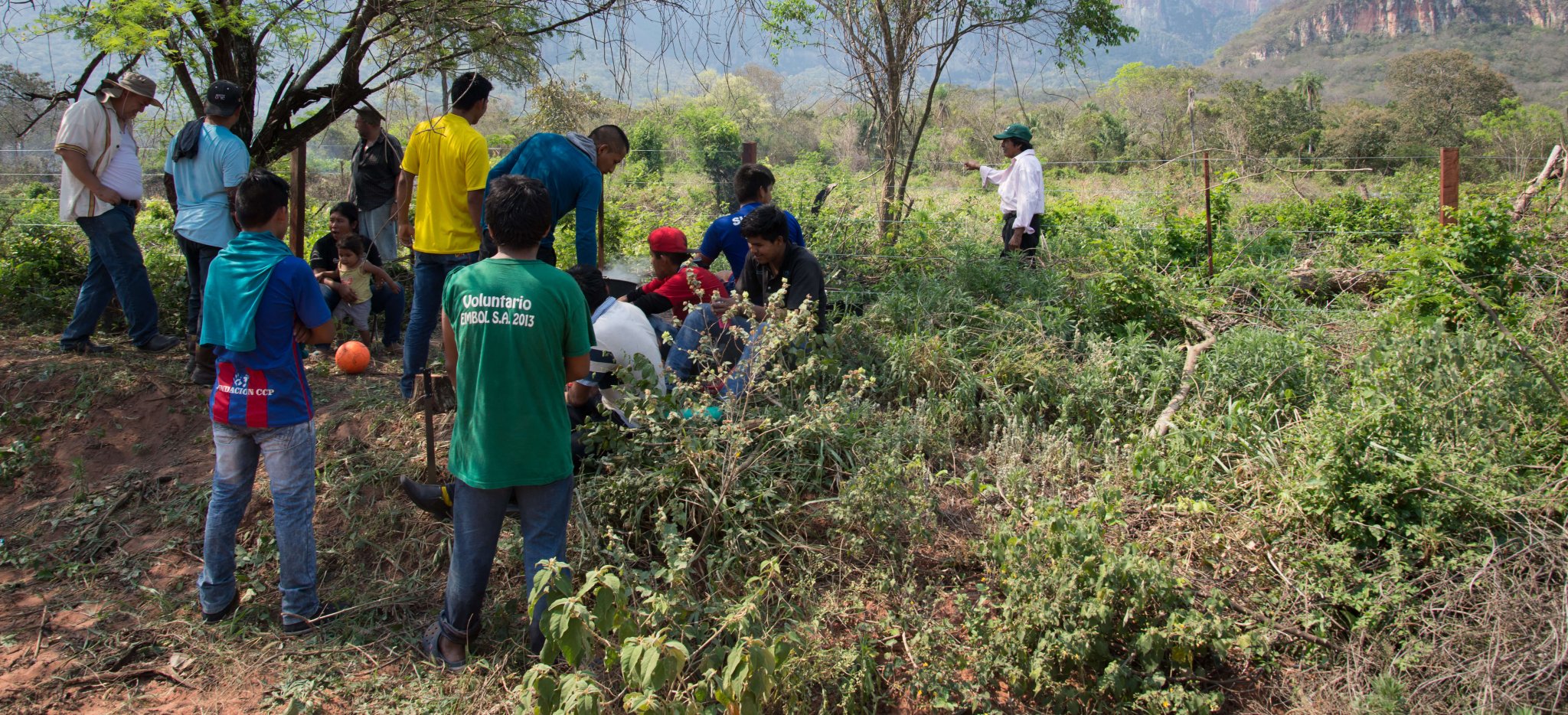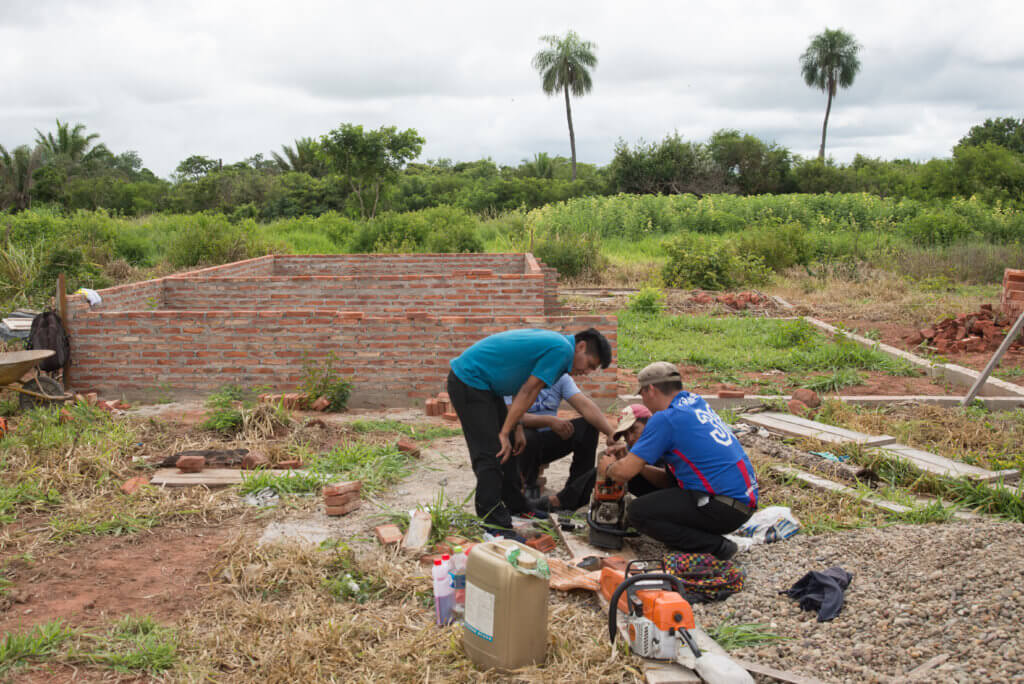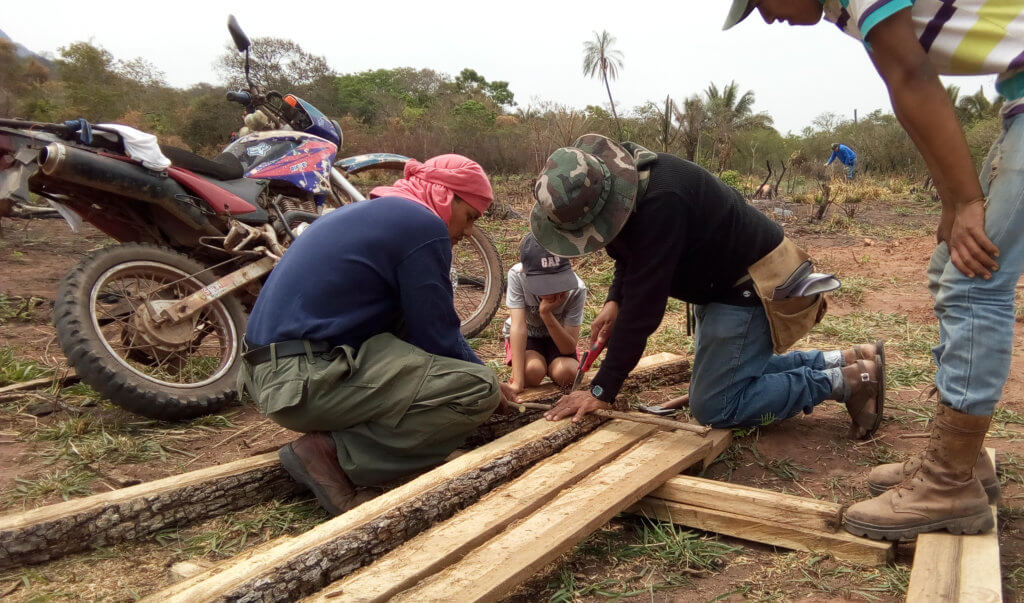
A bricklayer volunteered his time to help clear the land and lay the foundation for a home in rural eastern Bolivia. Working alongside other rural and indigenous volunteers, he told his story of being turned away from seminaries because he lacked a high school diploma.
The home he was building will house the directors of a new discipleship center being built in rural Bolivia for the indigenous and rural communities of the region. He was overjoyed to learn that this center would not require its applicants to have completed high school and enthusiastically stated he would be the first student.
Eastern Bolivia is a bustling region of industry and agriculture, housing 34 of Bolivia’s people groups and Bolivia’s largest city, Santa Cruz de la Sierra. For decades, missionaries, local pastors, indigenous community leaders and rural laborers have yearned for a strategic ministry to provide educational and theological resources. As Bolivia’s indigenous church continues to grow, its people look to seminaries which often close their doors to students without high school diplomas.
This vision for a discipleship center grew over many years through joint initiatives of Fundación Raphá, South America Mission’s (SAM) Indigenous Rural Outreach team (IRO), and other key local partners. Raphá is a Bolivian organization for the flourishing of indigenous communities founded by indigenous pastors with help from a group of SAM missionaries. Their president is a Bolivian doctor who has served with his wife in medical ministry for more than 20 years. Raphá’s partnership with SAM missionaries and with local indigenous leaders, César and Mirtha Surubí, exemplify the heart of this project: for Bolivians, by Bolivians.

The discipleship center will serve as a safe space for mentorship, life skills training, agricultural sustainability practices and medical aid. The indigenous and rural communities of eastern Bolivia currently lack financial stability, education, and adequate training to develop into vibrant communities transformed by the gospel. Raphá and SAM’s IRO team have seen what they describe as a “vacuum” in church leadership despite the evident hunger for growth in the indigenous church.
In February 2017, the IRO team traveled with Raphá members to the Semiraitá indigenous center in Brazil to gain excitement for their vision and learn from the ministry there. The witness of Semiraitá and solidarity built among the team proved to be the ultimate catalysts towards the realization of the dream. Two months after their return from Brazil, Raphá purchased the land for this discipleship center, and in late 2017 Raphá members and indigenous leaders broke ground together and set the foundation for the first building. Now, Raphá members and SAM missionaries are working in tandem to oversee the center’s development.
As the Surubís and SAM missionaries relocate to live near the property, the excitement continues to grow.
When asked about the hope and anticipation that they feel, SAM missionaries enthusiastically declared “It’s not just a North American thing. The church is in dire need of discipleship and while the North American church is helping, we are truly serving in supportive roles. We have seen plenty of projects over the years where the locals don’t see the purpose or the project doesn’t suit the culture, even though the projects sound good on paper. This center is truly an initiative being pushed by the local community, which means that it will last in the long term because of that shared vision!”
César and his wife Mirtha will be living at the center full-time to oversee the daily operations. Their decision to serve in this capacity only enhances the discipleship center’s purpose, as they both share indigenous backgrounds, César himself being of Chiquitano heritage. Even as indigenous and rural volunteers gathered to help clear the land last autumn and set the foundation for what will be César and Mirtha’s home, there was evidence of God’s hand in this work. César watched young Ayoré men work diligently, many of whom he mentored and discipled when they were raucous teenagers. To see these young men work together to set up a space for theological education was a testament of God’s faithfulness to this ministry.
“It is a privilege to serve my brothers in this area,” César declares. “I do not doubt that it is a responsibility for which we need the wisdom of God… The indigenous church will act like a bridge between the communities and organizations that will become its ally.”

Sustainability is what excites the team most about this discipleship center.
Though it will serve as a place for theological education and deep mentorship, the team will intentionally teach life skills to help the indigenous and rural communities sustain their families. Classes and sessions on finance, agriculture, and carpentry will give vital skills alongside Biblical discipleship to holistically minister to the students.
Even in the construction of the center, they see community involvement growing.
Raphá’s president has frequently visited the land and brought Ayoré friends with him to participate in the preparation of the land. By doing this, the Ayoré are investing in the project and taking ownership of its future. While laboring to clear the land, the young Ayoré men would ask deep theological questions. This desire to know more is the direct fruit of the Surubís’ and Raphá’s ministry to the Ayoré for so many years.
“There’s just this momentum that’s been building for so long,” one SAM missionary reflects. “Even in our tenure in the past 8 years that we’ve been connected to the indigenous church movement, seeing it from the outside, we’ve noticed a growth and development from apathy to discovering how to “do church” in their communities. Once they found their own way of “doing church”, it began to take off… The community is growing; it’s not perfect, but that hunger is growing and they want to know more. They want to be able to go deep.”
The process of developing the center will take time and exist in multiple phases, but even once César and Mirtha have a home to live in, the team foresees an immediate impact to the surrounding indigenous and rural towns. Some of the local communities’ more serious struggles are alcoholism, drug abuse, and prostitution, which indicates that a safe space away from those influences, where people could come and seek intentional discipleship, will provide aid to these communities from day one.
To learn more about Fundación Raphá and to financially support their efforts, visit their page: Fundación Raphá.
All photos were taken by Jason Weigner.
